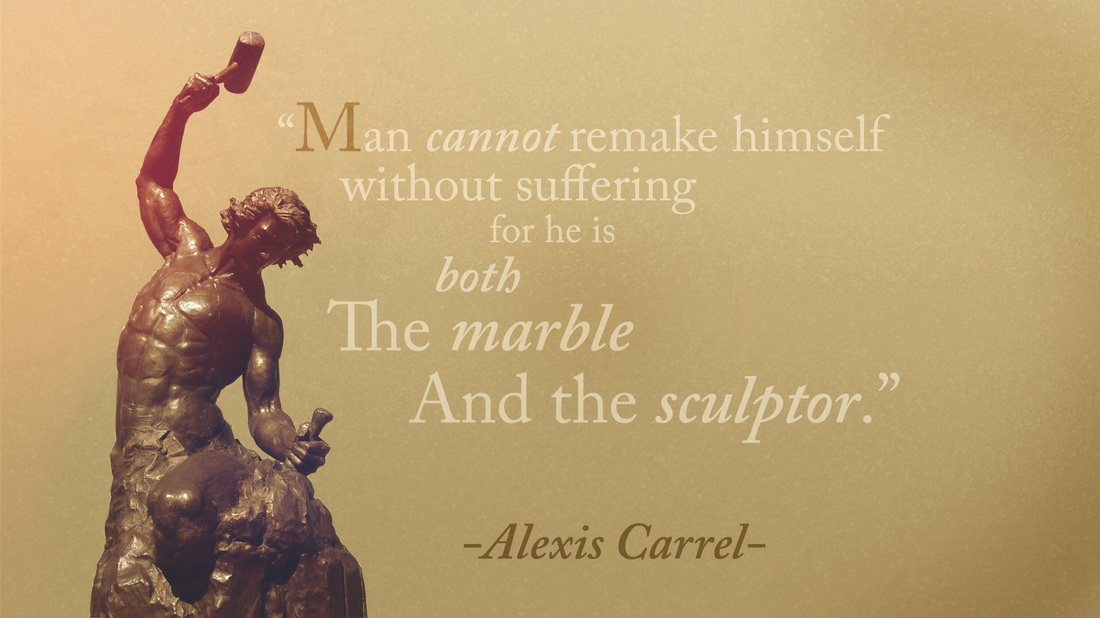― Alexandre Dumas, The Count of Monte Cristo
Why it's important to study philosophy is because there is simply "nothing new under the sun", and nearly every situation or suffering has been shared by a fellow individual whose thoughts, concerns, or strategy has been recorded so that posterity may learn. In addition to explanation, philosophy offers the language of logic which is capable of surviving generations in tact. In other words, it maintains it's integrity over time.
As I grew older, I learned to absorb the philosophies of many different 'masters' before forming my own code. In any pursuit in life, whether it be for pleasure, profession, or sport there has always been someone from whom you can learn. They have already done the work necessary to attain a level of mastery that anyone can learn from until they themselves become masters. It reminds me of Bruce Lee's quote: "absorb what is useful, discard what is useless, add what is uniquely your own".
One genre of philosophy that has been on my mind lately is that of the Stoics. Stoicism, which formed roughly in the 3rd century BC, deals with concepts such as determinism and conscious choice. In other words, Destiny and Free Will. It teaches one to focus on applying reason to understand the relationship between external stimulus and internal peace.
― Marcus Aurelius, Meditations
In applying this reasoning, he was able to serve Rome without the corruption of ego and emotion from clouding his judgement. This is the defining moment for a few men when they learn to separate their feelings from their decisions. Stoicism taught that humans were given the gift of 'choice' and were not subject to the blind irrationality of instinct and emotion which separates us from the other animals. Stoicism teaches the development of self-control and fortitude as a means of overcoming destructive emotions; the philosophy holds that becoming a clear and unbiased thinker allows one to understand the universal reason. A primary aspect of Stoicism involves improving the individual's ethical and moral well-being: "Virtue consists in a will that is in agreement with Nature." This principle also applies to the realm of interpersonal relationships; "to be free from anger, envy, and jealousy," and to accept even slaves as "equals of other men, because all men alike are products of nature."
One of the most studied Stoics is Epictetus, who was born a slave, became free, and through struggle became a philosopher. He maintained that all external events are beyond our control; we should accept whatever happens calmly and dispassionately. However, individuals are responsible for their own actions, which they can examine and control through rigorous self-discipline. Most of what we know of him came from his student's recordings. He held pantheistic beliefs that God was the Universe and was present in Nature and in All things. The essence of God is goodness, and humans were given the divine gift of reason to separate between good and evil. To Epictetus, good alone is profitable and to be desired, whilst evil is hurtful and to be avoided. He taught independence from external sources of happiness. Ultimately contentment comes from within.
American fighter pilot, James Stockdale, was shot down in Vietnam and held prisoner for several years. He was able to survive torture, isolation, and regain sanity by remembering Epictetus' philosophy. In his memoirs, Stockdale quoted Epictetus as saying, "The emotions of grief, pity, and even affection are well-known disturbers of the soul. Grief is the most offensive; Epictetus considered the suffering of grief an act of evil. It is a willful act, going against the will of God to have all men share happiness"
Furthermore, Epictetus' teachings have influenced countless Stoics from Caesars to prisoners as well as cognitive behavior therapy as developed by Albert Ellis. It empowers the individual to unleash the abilities of their minds to overcome the emotional obstacles preventing happiness.
Lastly, the nature of stoicism is rooted in spirituality as in gratitude to God for the gifts of reason and logic. Both Stoicism and Christianity assert an inner freedom in the face of the external world, a belief in human kinship with Nature or God, a sense of the innate depravity—or "persistent evil"—of humankind, and the futility and temporariness of worldly possessions and attachments. Both encourage with respect to the passions and inferior emotions such as lust, and envy, so that the higher possibilities of one's humanity can be awakened and developed.
Some amazing pearls of this philosophers wisdom:
"Men, the lecture room of the philosopher is a hospital; students ought not to walk out of it in pleasure, but in pain."
“Nature hath given men one tongue but two ears, that we may hear from others twice as much as we speak.”
“Wealth consists not in having great possessions, but in having few wants.”
“Seek not the good in external things; seek it in yourselves.”
“Don't explain your philosophy. Embody it.”
― Epictetus









 RSS Feed
RSS Feed
